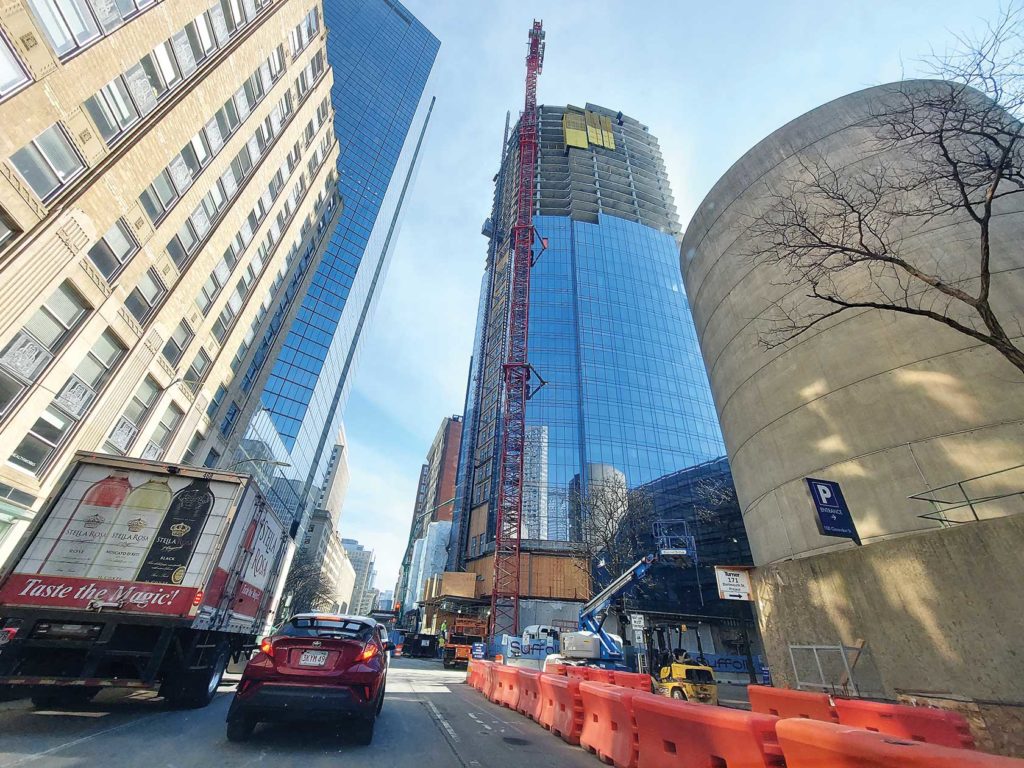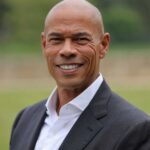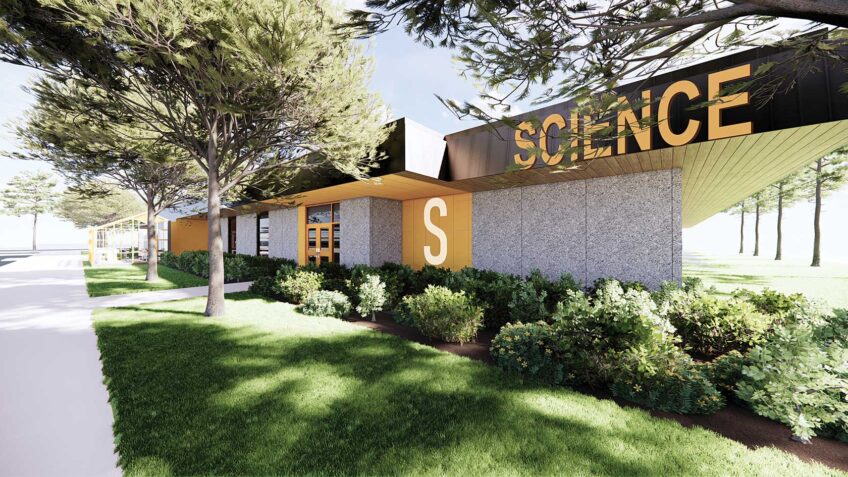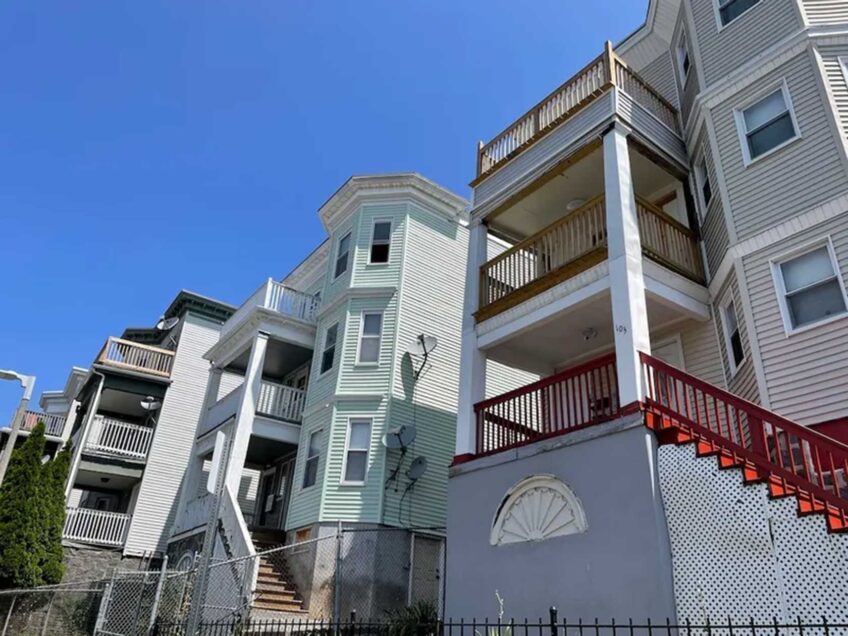Activists seek greater input in development
Mayor plans overhaul of BPDA’s Article 80 process

As Mayor Michelle Wu pushes forward with an ambitious overhaul of the city’s planning and development processes, neighborhood leaders and civic advocates are cautioning that any streamlining of development should not come at the cost of community input.
Last week, Wu announced the formation of a special steering committee charged with advising her administration on its ongoing review of the city’s Article 80 process, which dictates how the Boston Redevelopment and Planning Agency (BPDA) reviews larger-scale developments across Boston.
The mayor’s office said the nine-member advisory body is “one piece of a comprehensive set of reforms to improve the planning and development process so Boston can meet its housing and economic growth needs,” and says the study with which it has been tasked marks “the first comprehensive review of the [Article 80] process after nearly three decades.”
The mayor announced appointees to the steering committee last week, a roster that includes experts in urban planning and design, architecture, zoning law, building permitting, and racial and social equity in development — as well as one member, Allston Civic Association President Anthony D’Isidoro, representing at least one voice from the city’s numerous neighborhood civic associations.
The move is part of Wu’s broader plan to separate the city’s planning and development functions — which for decades have both been overseen by the BPDA (formerly known as the Boston Redevelopment Authority, or BRA), while also streamlining the city’s byzantine development review processes — a goal that can mean different things to different parties.
Developers, it is clear, want to see it become easier to move through the process to completion of projects.
“We just would like the Article 80 review process to result in an outcome that does not add additional time and expenses to the development process, driving up the costs of doing business in Boston,” summarized Greg Vasil, a spokesperson for the Greater Boston Real Estate Board.
For neighborhood groups, civic advocates and local leaders, however, the situation is more complex: They emphasize that “streamlining” the process for developers should not come at the cost of including robust input from the residents who will have to live with the development decisions made.
“In many cases, Article 80 is entirely too responsive to developers — developers propose and then we respond to them. And I feel that there should be a proactive stance,” said state Sen. Lydia Edwards, who represents the development-heavy neighborhoods of East Boston, Charlestown and the North End.
Edwards, who while serving on Boston City Council helped amend the Article 80 process to include reviews of racial equity, displacement and integration, says careful and considered city planning should come before development.
A robust city planning department, Edwards says, should be spelling out to developers what a neighborhood needs — and then telling interested developers upfront, “Stick within those guidelines, stick within those needs.”
“I hope that the Article 80 process will eventually be so deeply informed by neighborhood needs, feedback and desires, that when a developer is being vetted by the BPA, they’re not taking necessarily a 30,000-foot, cookie-cutter view … and that it’s not going to be the same boring box design that they have basically allowed to be vomited all over the city,” Edwards said.
Edwards urged the Wu administration and the new steering committee specifically to reconsider the role played by Impact Advisory Groups, or IAGs — an individual or group of individuals, selected by local elected officials and one of the chief means by which the BPDA has considered neighborhood input in development projects.
Currently, says Edwards, “There’s no requirement that the person on the IAG have any experience in the environment … that they speak different languages or reflect the languages of the neighborhood,” or any other of myriad potential qualifications to represent the larger neighborhood.
Often, Edwards adds, the unpaid IAG members tend to be older residents with the time and resources to be able to participate in development meetings.
“That’s not knocking people who have [participated],” Edwards says, “It’s demanding a system that’s more welcoming to more different people.”
Gary Tondorf-Dick, an architect who has been heavily involved in community input in development projects in Dorchester, said of the recent appointments that he is “glad that they are addressing the issue with a very good group of people with expertise” — but noted that the steering committee as currently appointed does not include representatives of many civic groups, which can not only speak for residents but which possess their own on-the-ground expertise when it comes to how developments affect their neighborhoods.
Tondorf-Dick suggests that civic associations be added to the steering committee.
“We need the community. We need the residents to have a seat at the table, at these high-level meetings — residents who experience this day to day … people who are going to have to live forever with whatever changes are made.”
Lorraine Wheeler, of the neighborhood group Roxbury Path Forward, agrees.
“Myself and other people in the neighborhoods, would like to see more community perspective on the committee,” Wheeler told the Banner. “We have so many residents that were negatively impacted by development projects and the many loopholes — and at times cronyism [that have shaped development in the past].”
Wheeler added, “It’s not too late to add members [to the steering committee], and that’s what we would like to see.”
Fatima Ali-Salaam, chair of the Greater Mattapan Neighborhood Council, emphasized that development does not occur in a vacuum — and that the impact of individual projects spills over into effects on streets, parks, green space and quality of life.
“It’s about more than the building of housing … If you’re not doing something that actually contributes to the building of a community, it becomes very hard” to implement successful development, Ali-Salaam said.
Ali-Salaam notes that groups like hers represent residents who have been historically left out of planning and development processes.
In communities like Mattapan, she said, “We were redlined into the places which we’ve now called home for decades and decades — and now the perception is that somehow we need to not be part of the decision-making, in deciding how we would like the spaces in which we have been living to be.”
She added, “I think they all realize that the scope of what they’re talking about is extremely large and very far-reaching, and will cross so many different parts of Boston, and will have implications across the board.”





